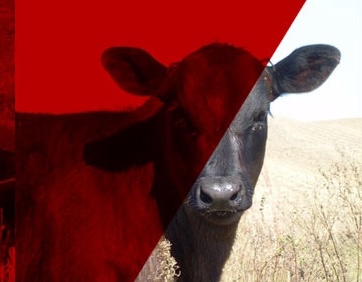Agriculture is a rewarding business, but it does come with stressors – weather, cattle and grain prices, debt, etc. -- that can stack on top of each other. It’s important to recognize the value a person brings to an operation compared to the markets, number of acres you own, or the number in your bank account. Farmers and ranchers tend to struggle with a lack of routine, or lack of structure that comes with the business and having to always be flexible when dealing with the unknown. Producers tend to push through these adversities without giving themselves grace. It’s okay to have extra drive to push through difficult times but recognize there is a balance between being tough and knowing when to take care of ourselves. Producers aren’t able to take care of their farms and ranches and their family if they don’t take care of themselves first.
During times of uncertainty, it’s important to engage with production and economic experts (marketing specialist, crop specialists, veterinarians, economists, etc.) for help in all aspects of agriculture. Include a mental health professional or someone to help navigate stress and emotions during these uncertainties as well (DeSutter, 2021). Agriculture is full of uncontrollable variables and make or break factors that leave a huge impact on our operations and will continue to contribute to stress. Not only do we deal with events that are out of our hands, but farmers and ranchers may be fighting comparison, our fields are out on display for everyone to see, our cattle are out on pastures for everyone to drive past and critique. It is okay to be stressed, but do what you can and set reasonable expectations.
Reducing Stress
Production agriculture workers are ranked fourth in male suicides (Miller & Rudolphi, 2022). Know when it is time to ask for help and when to sit down and talk to someone. Learn ways to manage your stress.
Find someone to talk to, whether this person be a spouse, a neighbor, a friend, someone to help you reflect on the current struggles you are facing and someone to simply listen (DeSutter, 2021). Getting professional help is one of the hardest band-aid’s to rip off but know when it’s time to do so.
Take care of your physical health. Prolonged stress can result is serious physical and emotional issues (VanDeWalle, 2020).
Schedule breaks. In agriculture, it’s common to hear “there are no days off.” Livestock will always need to be fed, but take advantage of the days that “feed cows” is the only task on the to-do list and schedule more of these days when needed.
Focus on what can be controlled. Being able to relax and manage stress during those peak stress seasons of agriculture takes constant discipline and practice. Focus on events that you can control along with attitudes and responses towards those events (VanDeWalle, 2019). Plan ahead, set priorities, and have open discussions with all operation workers to divide tasks.
Learning to recognize your stressors and how to manage stress can help you personally and those around you. If you recognize someone in distress, use a caring approach in listening to them, and then connect them to resources.
How to help
Stress looks different on everyone. Recognize when someone is no longer themselves. Learn symptoms of stress, depression, or anxiety and ways you can help. Empower people to ask for help but know when it’s time to reach out with help (Harris-Broomfield, 2019).
Being a listening ear can go a long way. Everyone manages their struggles in different ways. Sometimes being empathetic is the best thing you can do for a family member or friend.
Encourage them to speak to a professional if necessary. Some people who are in distress or depressed may not realize they are or may even be in denial. Producers push themselves to keep going every day (DeSutter, 2020).
QPR Training is a great option for anyone who feels inclined to help those in need. QPR stands for question, persuade, refer and is meant to help “save lives and reduce suicidal behaviors by providing innovative, practical and proven suicide prevention training.” (qprinstitute.com)
Multiples layers of stress can be difficult to overcome. We are potentially not our best selves while enduring this current climate of stress. Be kind to yourself and gracious of others. If symptoms of anxiety or depression last longer than 2 weeks, or if you notice a family member or friend who is constantly pulling away from work processes, from talking with others, or mentally isolating themselves, please connect them to a resource.
Resources
Many mental health resources exist to help those in the agricultural community:
Rural Response Hotline, 1-800-464-0258
National Suicide Prevention Life Line, 988
Nebraska Family Helpline, 1-888-866-8660
Betterhelp.com
Ruralwellness.unl.edu
Local mental health professionals
Local religious leaders
Interviews with the authors of BeefWatch newsletter articles become available throughout the month of publication and are accessible at https://go.unl.edu/podcast.

